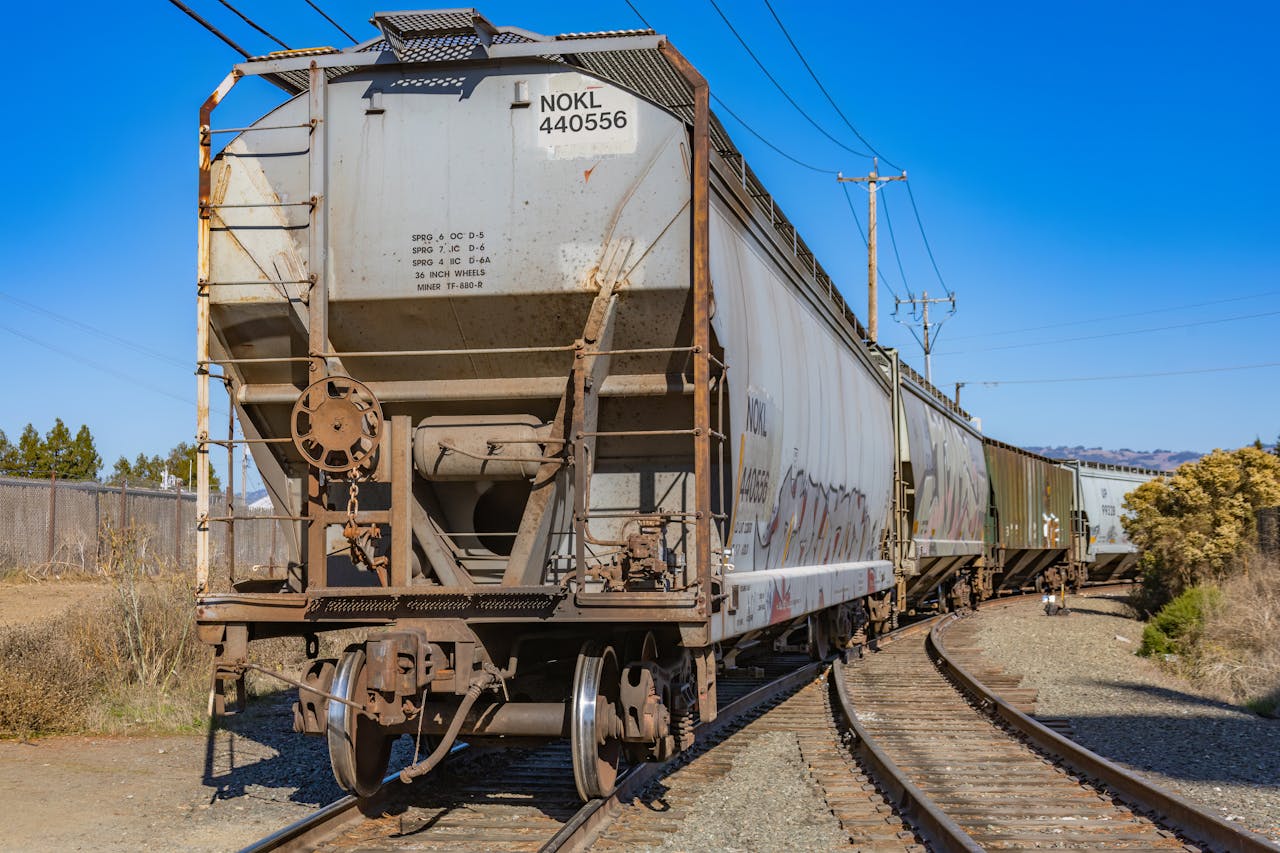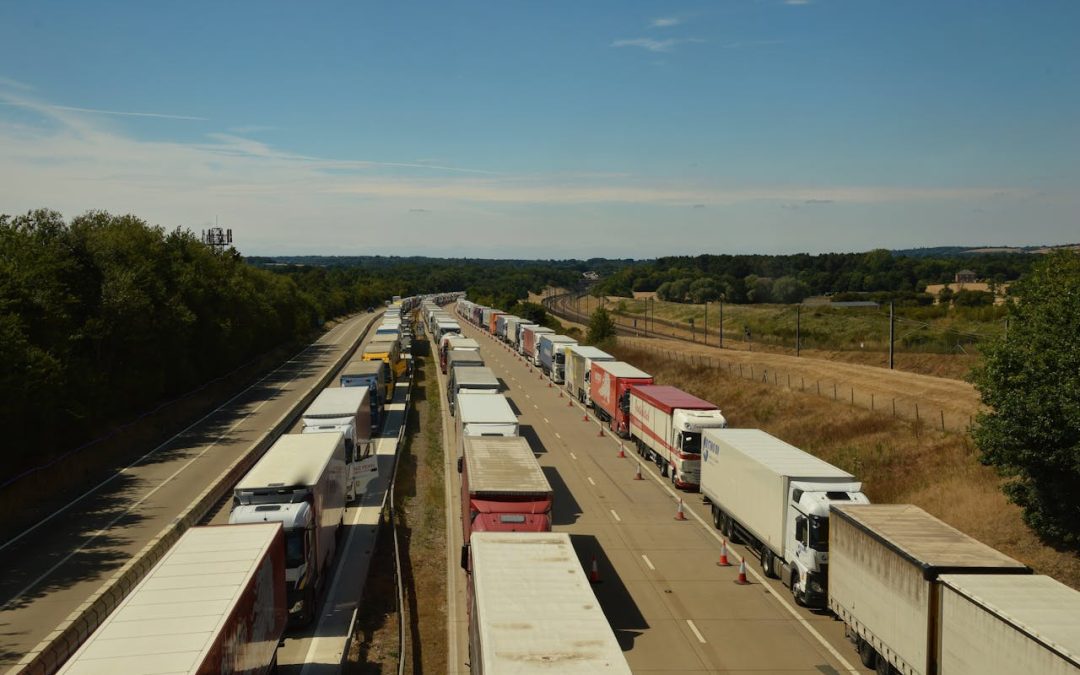Shipping delays are frustrating and costly, but the good news is many of them are avoidable.
But why do delays happen? What can go wrong with a shipment? And how can you get around any issues that arise?
Let’s dive into the most common causes of late deliveries and what you can do to prevent them.
Global Events
From pandemics to weather disasters, global events can throw a serious spanner in the works if you are shipping goods. Even a localised event like a port closure can have widespread consequences, such as a significant backlog that slows shipping lanes globally.
Let’s look at a recent example. In March 2024, a major bridge collapsed in the port of Baltimore. This might not sound like a global event, but the port is one of the busiest harbours in the USA. Around a dozen cargo ships were stuck inside the port unable to leave, with more having to divert their route from the now unusable port.
The bridge collapse led to an immediate delay in the global movement of goods and congestion at alternative ports. Rerouting ships to other ports, and the delays in shipments themselves, caused logistical issues for shipping companies and a hike in costs.
Other ongoing events include the spate of Red Sea attacks, which are expected to continue into 2025. Attacks on vessels travelling over the Red Sea means traffic through the Suez Canal is heavily reduced, with shipping companies choosing to add more than a week to their journey time to ensure their goods remain intact.
How To Plan Ahead
Here are some ways to avoid the common shipping delay caused by global events.
- Focus on resilience. Rather than trying to control what happens, which is impossible, concentrate on your ability to adapt quickly to events that do arise.
- Diversify suppliers. Don’t have all your eggs in one basket geographically.
- Communication is key. Don’t underestimate the benefits of good comms with your forwarder. They should keep you updated on the unfolding situation so that even if your goods are stuck, you have an idea of what’s going on and can manage your business accordingly.
Supply Chain Holdups
Supply chains can have many aspects and each one is a potential vulnerability. From backlogs to port congestion, supply chain issues can lead to serious delays.
Here are some examples of problems you might encounter…
Ports that experience higher volumes of cargo than expected can become congested. This can also be caused by inadequate infrastructure and labour shortages. Congestion means ships must wait longer to be unloaded, causing delays.
Incorrect or incomplete documentation, as well as low staff numbers, can lead to hold-ups at customs.
Take into consideration things like warehousing, disruptions in transport links, and complex supply chains and you can see how a domino effect is created, and fast.
How To Plan Ahead
Here are three ways you can prepare for supply chain holdups to avoid delays…
- Distribute inventory. Consider storing stock across multiple warehouses or fulfilment centres.
- Safety stock levels. Plan ahead and calculate buffer stock, just in case.
- Supplier relationships. Nurture close relationships with multiple suppliers for increased flexibility during shortages.
Mechanical Failure
Sometimes, humans have nothing to do with the problem, and it’s mechanical. Breakdowns of ships, planes, trains and trucks are not unheard of. Even a minor issue with one vehicle or ship can cascade into a major delay.
How To Plan Ahead
So, what can you do to prepare for mechanical failure?
- It’s who you know. Or at least who your freight forwarder knows! It’s best to work with a freight forwarder that has an extensive network, just like Millennium, so that you can change carrier if needed.
- Communication is critical. Real-time tracking and regular updates from your forwarder mean that you can manage your side of things.

Extreme Weather
It might not happen often, but extreme weather events can and do cause shipping disruption. And we’re not just talking about blizzards and storms; extreme heat can cause tarmac to melt or ignite wildfires that cause disturbances to transport links.
How To Plan Ahead
Let’s look at how to combat weather problems and avoid delays.
- Use forecast tools. Make use of smart forecasting tools to monitor weather conditions.
- Plan contingency routes. Use a reliable forwarder who can plan alternative routes in case of weather disruptions.
- Get insured! Freight insurance can offset potential losses caused by weather delays.

Wrong Paperwork
There are tons of different types of documents required throughout the shipping process. To ensure your shipment gets to its destination in a timely manner, you must make sure you provide not only the correct paperwork, but paperwork with no mistakes whatsoever.
One wrong digit and your whole shipment may go astray.
Typical mistakes on shipping paperwork include;
- Missing packing list
- Incorrect freight class
- Wrong Bill of Lading information
- Incorrect delivery address or contact information
- Wrong weight/pallet count
- Missing product description
- Incorrect or missing value
- Inaccuracies in filing in the destination or origin
How To Avoid
Shipping delays have costly knock-on effects. Here’s how you can help to avoid wrong documentation.
- Get automated. Digital processes and software packages reduce human error.
- Ensure your labelling process is clear.
- Partner with a reputable freight forwarder. A forwarder’s expert knowledge reduces the burden on you to get it all right.
Avoid Shipping Delays, Reduce Costs And Keep Customers Happy
Delays can cause disgruntled customers, damaged reputations and businesses out of pocket. Some delays are unavoidable, but these tips should help you manage the ones that can be avoided.
Looking for a friendly forwarder who’s always at the end of the phone? Get in touch with Millennium to find out how we can help today.

